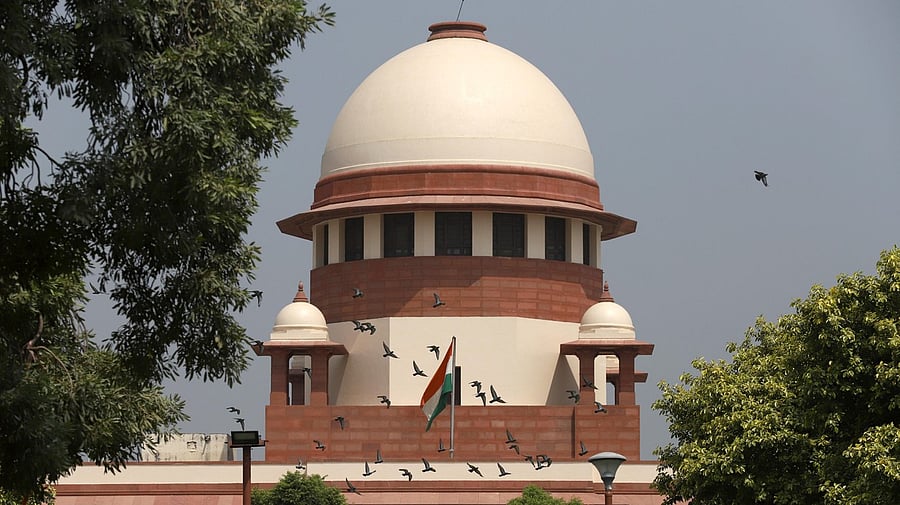
The Supreme Court of India.
Credit: iStock Photo
New Delhi: The Supreme Court has set free a man in a sensational case of rape and murder of an 85-year-old woman in Coimbatore in 2016 after finding deficiencies and significant gaps in prosecution case, leading to other possible hypotheses.
A bench of Justices Dipankar Datta and Augustine George Masih set aside the Madras High Court's 2021 judgment that affirmed conviction and sentence of life term awarded to appellant Mohamed Sameer Khan.
Allowing the appeal, the court held prosecution has failed to connect the appellant to the offence through medical or forensic evidence as no blood, hair or skin sample, or fingerprint belonging to him has been found on the body of the deceased, the recovered articles, or at the place of occurrence.
Granting benefit of doubt to the appellant, the bench ordered his forthwith release from Central Prison Kovai, Coimbatore, Tamil Nadu, if not required in any other case.
The woman, who lived alone, was found dead on December 19, 2016. The post mortem revealed she died by strangulation and suffered sexual assault too. Two gold bangles were found missing from her body. Her daughter, who lived opposite to the house of the deceased, lodged an FIR.
The appellant was arrested on December 22, 2016 after a witness, Akash living in vicinity, disclosed that the accused stayed with him for the last two days but on the fateful date, after a birthday party at his place, the appellant with another person Marcus went out for smoke around 2 am but left his place in a huff, saying that he had got a job offer.
The court, however, found contradiction in his statement with another witness, Senthil Kumar who saw him coming out of the compound after the incident. It also doubted the police claim of his arrest from an overbridge and recovery of two bangles from him.
"Merely because the medical evidence proves the unfortunate loss of life would not be enough to convict a person since he happened to be in the vicinity," Justice Masih wrote in the judgment of October 29, 2025 for the bench.
The court held in the absence of any forensic evidence when there is no eyewitness and the case is of circumstantial evidence, benefit would go to the accused.
"In cases wherein the guilt of the accused is sought to be established by circumstantial evidence, if two views are possible on the evidence adduced in the case, one pointing to the guilt of the accused and the other to his innocence, the view which is favourable to the accused should be adopted,'' the court said.
The court pointed out the prosecution failed to examine Marcus as witness in the case, which created a doubt as he could be a suspect and in any case the person who would have indicated as to how long he and the appellant were together, throwing some light as to whether the appellant had the opportunity or time to go to the site of incident and/or commit such an offence.
"This doubt is further fortified from the fact that Marcus was a friend of Akash and could have been visiting the place and so would have known the area well,'' the bench said.
The possibility of him knowing about the vicinity, and the residents of the area and their social status etc along with other aspects, cannot be ruled out, the court opined.
